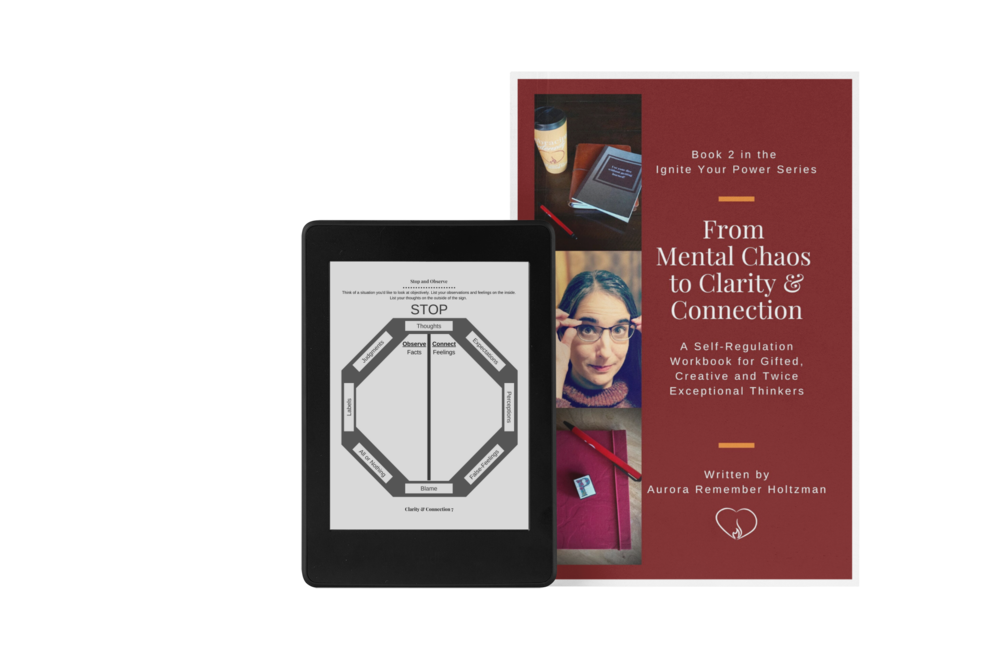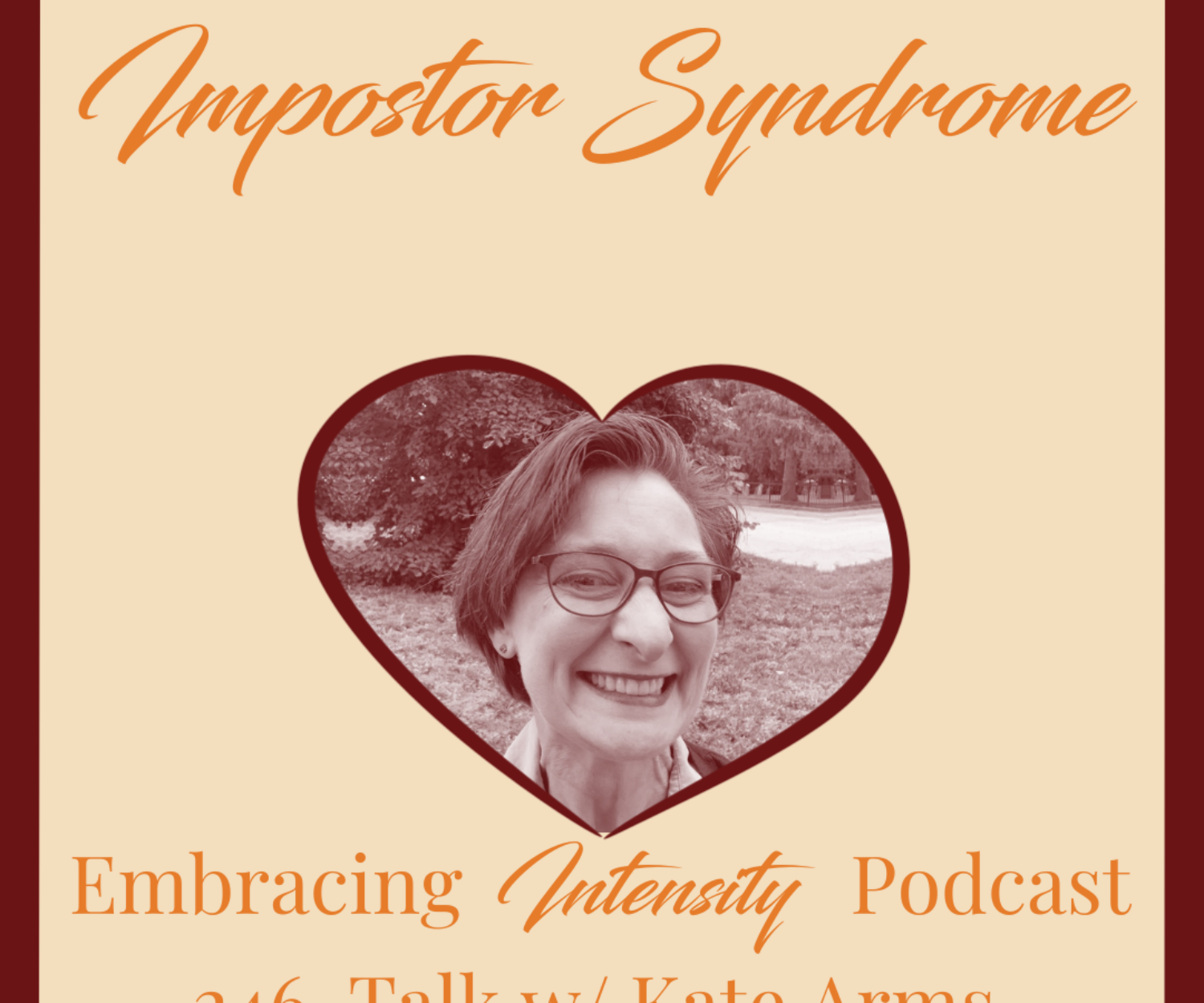Giftedness and Twice Exceptional Assessment – Considerations for Adults
As an adult who is, or suspects you are, gifted and/or twice exceptional, you may be looking into the possibility of evaluation. It can help to confirm or validate your own suspicions, or to give more information on your own strengths and challenges. There are a variety of approaches to gifted and twice exceptional assessment for adults. It can be a big financial investment, so can be helpful to understand your goals when you pursue and evaluation. Having educationally evaluated, and reviewed evaluations for nearly 20 years, there are a lot of things to consider. Because this post has a lot of information to take in, I have highlighted key points at the beginning of each section. I also summarized the content in this Podcast Episode.
Getting evaluated as a Gifted or Twice Exceptional Adult
Key Points:
· If you think you’re gifted, you’re probably gifted.
· It is crucial that evaluators have a strong understanding of giftedness and twice exceptionality.
· Every type of assessment has its limitations and strengths.
· Evaluators each have their own biases that affect interpretation.
· They should be transparent about the potential limitations of their assessments and biases, along with the benefits.
I’d like to start out by saying that imposter syndrome is a frequent experience with gifted individuals. It’s natural to want confirmation or validation. As Paula Prober notes on this episode of Unleash Monday though, when asked how many people come to her thinking they might be gifted but aren’t, she said basically none. You are far more likely to be gifted and think you are not than the other way around. This is exponentially so when you add in another exceptionality, or neurodivergence.
If you do pursue an evaluation, it is crucial that evaluators have a strong understanding of giftedness and twice exceptionality. If you’re just looking for a diagnosis for accommodations or medication treatment, it could be enough for the evaluator to acknowledge that you can’t be “too smart” to have a specific diagnosis, but if your want more comprehensive analysis of strengths and challenges, and strategies to support you then someone who has experience with gifted and twice exceptional assessment for adults will see patterns that others may miss.
Knowing their strengths and limitations
Every type of assessment has its limitations and strengths and every evaluator has their own biases that affect interpretation. Evaluators should be transparent about the potential limitations of their assessments tools and personal biases, along with the benefits of their modalities. For example, I am aware that as a person with ADHD, I will see ADHD related patterns more quickly than other neurodivergences so I use other screening tools that factor in a variety of neurodivergences in case someone wants to pursue a formal diagnostic evaluation. I am actively working to learn more about first hand experiences of folks who are late diagnosed with other neurodivergences such as Autism etc.
The tools that I use are mostly educational in nature, and look at how we think and learn, but each of them has specific limitations and strengths, so I choose a variety that complement each other. I can identify specific learning disabilities, and processing strengths and weaknesses, but every state has a different model for identification so I try to look at the information using several different models when doing comprehensive educational evaluations for students. My adult assessments are more for informational purposes and can help point to effective strategies and resources, but would not take the place of a full neuropsychological and diagnostic evaluation. Diagnostic evaluations vary widely though, and some come out with a diagnosis, and possibly medication, but very little information on how it specifically applies to them, while others are dismissed for diagnosis because they don’t meet the evaluators pre-conceived perception of it.
Some of the most common types of assessments include:
· Diagnostic Evaluations
· Psycho-Metric Evaluations (IQ, achievement etc.)
· Qualitative Assessments
· Self-Assessments
· Multi-Modal Assessments
Examine your own strengths and support your weaknesses with the self-assessment checklist in my free Harnessing the Power of Your Intensity Workbook!
Diagnostic Evaluations:
Key Points:
· Be sure that your evaluator is familiar with giftedness and twice exceptionality, or at the very least don’t believe you can be “too smart” to have ADHD, or “to social” to have Autism.
· Ask what tools and criteria they use as the basis for diagnosis and make sure they are using a variety of approaches.
· If you are pursuing a specific diagnosis, be sure that your evaluator is knowledgeable enough in possible comorbidities or related conditions to rule them out, or refer you to a professional who can if there are signs.
· It can be helpful to share comprehensive screenings that pinpoint your symptoms and why you are pursuing a diagnostic evaluation.
Diagnostic evaluations are invaluable for getting accommodations, guiding treatment and directing you towards resources and strategies, but if an evaluator is unfamiliar with the intersection of giftedness and other neurodivergence, they may either dismiss the struggles, or misdiagnose them without a full understanding of how giftedness may play in. I have heard many late diagnosed, or not yet diagnosed, folks say that they were first told they were “too smart” to have ADHD, or “too social” to have Autism, or they made too good eye contact.
They don’t factor in how giftedness may compensate in some areas, but make it more difficult in others, or how they may have developed elaborate coping mechanisms or masking that take an internal toll. Historically, diagnoses have mostly looked at how someone’s behavior has affected others, or their outside achievements, but don’t look internally at how the stress may have affected their mental health, self-esteem or even physical health.
I personally can’t make medical or mental health diagnoses such as ADHD or Autism, but have accurately referred many students for diagnostic evaluation for nearly 20 years and reviewed many diagnostic assessments as a part of school evaluations. I’ve had parents come back to me saying the doctor said, “they can’t have ADHD because it has to be in all settings, and they can focus when they are camping.” This doesn’t consider the fact that ADHD isn’t necessarily a deficit in attention, but a difficulty in regulating attention, so they can actually hyper-focus on things that interest them, they just can’t always control what interests them.
Understanding their process
Ask what tools and criteria they use as the basis for diagnosis and make sure they are using a variety of approaches. Diagnostic criteria can be very broad and subject to interpretation. I appreciate when evaluators look at statistical data as a part of evaluation, but one measure alone should not determine or rule out a diagnosis. Some tools won’t quite catch the specific issues someone is experiencing. An evaluator knowledgeable in giftedness and 2E will know what to ask to get deeper into the core of the issue. In the end, while they may come to a different conclusion than you expected, their results should at least make sense to you. If you feel like it doesn’t make sense, or give you the whole picture, it is OK to get a second opinion.
Also, if you are pursuing a specific diagnosis, be sure that your evaluator is knowledgeable enough in possible comorbidities or related conditions to rule them out, or refer you to a professional who can if there are signs. I have seen comprehensive evaluations for ADHD that did not have enough information to support a diagnosis, but had clear indicators of possible Autism and didn’t even mention the word, or recommend a professional who could evaluate for Autism.
Not everyone will have experience with all diagnoses to diagnose everything, but they should at least be aware of indicators, and willing to refer out when needed. I’ve also reviewed evaluations for things like Auditory Processing Disorder or Visual Processing issues that noted challenges with aspects that can be related to attention, like being able to hear or see details when there is background noise, but because they only looked at that one area or processing, they didn’t rule it out using other sensory modalities.
It can be helpful to share comprehensive screenings that pinpoint your symptoms and why you are pursuing a diagnostic evaluation. I have found the FBA Profiler on LDInfo.com useful as an overall screener to look at potential diagnostic indicators to rule out, though I always give the warning that the website is outdated and some of the wording is problematic. I also reframe the “functions of behavior” to look at “motivating needs” (I’m planning a self-assessment post soon to go into more detail). It does, however, update it’s norms and can be a good starting point for what to consider. If you suspect Autism, there are a variety of self-ratings recommended on Embrace Autism and if you suspect ADHD, the NYU Langone ADHD Symptom Checklist has been recommended by health professionals.
If you would like to explore further, you can follow some professional organizations who can diagnose and are knowledgeable in giftedness & 2E including Summit Center, and the SENG Mental Health Provider Directory.
Emily Kircher Morris, LPC has a variety of podcast episodes related to diagnoses on her Neurodiversity Podcast.
Psycho-Metric Evaluations:
Key Points:
· These include standardized cognitive (IQ), achievement and processing tests, mostly performed 1:1.
· Be sure your evaluator has experience with gifted individuals, and understands that “average” can still be a weakness.
· Know that that extreme highs and lows may bring down your overall score, and you can have a false low but not a false high.
· Consider emotional and physical factors that may affect performance, and aim to minimize those.
· Understand that IQ assessments of adults may be lower than they would have been if tested younger for a variety of reasons.
· The evaluator should look beyond test scores alone and observes thinking patterns, and testing responses on a qualitative level as well.
Psycho-Metric Evaluations include standardized testing that is most often performed one-on-one with a highly trained evaluator. This includes many tools used in Psychological/Neuro-Psychological Assessment, as well as Comprehensive Educational Assessments such as those completed in schools for identification of services, and evaluating a profile of processing and learning strengths and weaknesses. The most commonly used assessments are standardized cognitive assessments (IQ), and standardized academic assessments that look at aspects of reading, writing and math. There are also more specialized evaluations that look at specific processing areas more in depth such as visual processing, auditory processing, working memory and executive functioning.
If you are pursuing an evaluation that involves psycho-metric evaluations, it is extremely helpful to find someone who has experience testing gifted and twice exceptional adults. As long as they are qualified to administer cognitive testing, degrees and years of experience don’t matter nearly as much as a solid understanding of the statistical significance of a “spiky profile,” when there is a significant range of highs and lows within an assessment. I’ve seen reports saying that someone has “well developed” skills in an area because they scored average, when it was 3-5 standard deviations below their highest scores! For reference, 1.5 standard deviation difference is notable, 1.5-2 would be statistically significant on most assessments.
I myself was asked, “why did you even take this test?” in college because my scores were mostly well above, with a few average, despite the fact that my Visual Processing was at the 99.9the percentile and Auditory Working Memory was at the 25th. Yes, that’s technically still average, but that gap made things extremely difficult for me, and was an indicator of what has later been confirmed as ADHD.
It’s also crucial that the evaluator acknowledges that a spiky profile may bring down the overall cognitive score, and look at clusters or other scores beyond the full scale as indicators of giftedness. If using the WISC, for example, they should share the GAI score if working memory and processing speed bring down the full scale IQ. If verbal skills bring down the full scale score, they should share the nonverbal quotient etc. Also keep in mind that while you can have a false low on a test, unless there’s an evaluator error, you can’t have a false high.
If you’ve had an evaluation in the past with extreme highs and lows, but didn’t feel like you got clear answers on your thinking and learning strengths and challenges, I also do consultations to review past assessments for processing strengths and weaknesses and other patterns.
Another theme I’ve heard frequently is people being denied diagnoses of ADHD, Autism etc. because their scores were too high in areas that are usually relatively weak. The problem with this is that, especially gifted and twice exceptional folks may have a relative weakness, that still falls within normal limits, or even above. I’ve also evaluated ADHD students who score really high in areas that are typically lower for ADHD, like working memory and processing speed, because they found the task to be a fun challenge and hyper-focused on it. This is often seen in the digit span assessment when they score higher the more challenging the working memory task gets because they start to tune in more as their interest increases, so they actually remember more digits backwards or mixed up than they do just repeating verbatim (which is the technically easier task).
Performance may vary
Performance on standardized assessments can vary and may be affected by such factors as time of day, time of the week, sleep, hunger, anxiety and other emotional factors. It is crucial to choose an evaluator who can create a positive environment for you, plan for an optimal time of day and connect ahead of time to reduce stress when needed. Internal factors can be supported, but not always eliminated.
If you are aware of any factors that may impact the outcome of the evaluation, it is helpful to share those ahead of time. Additionally, evaluators should account for physical factors that might affect scores, such as vision limitations, or chronic pain that may require frequent breaks and movement. If you are used to just “pushing through” discomfort to get the job done, consider checking in with your physical and mental state regularly to limit how unconscious factors may be contributing to your performance.
It is also important to note that for a variety of reasons, cognitive scores in gifted adults often are a bit lower than they would have been if given in childhood. The Flynn effect is the substantial and long-sustained increase in both fluid and crystalized intelligence test scores that were measured in many parts of the world over the 20th century. This means that when tests are reformed, an individual who would have scored higher on the old norms score a bit lower on the new norms.
In statistics, regression toward (or to) the mean is a phenomenon that arises if a random variable is extreme on it’s first measurement, but closer to the mean or average on the second measurement and if it is extreme on the second measurement but closer to average on its first. This means that an individual who scored extremely high on test measures at a younger age, are more likely to score closer to the mean as they get older. Finally, because tests have less items above age level for adults, there are less items to score well above average on the test.
Finally, be sure the evaluator is looking beyond test scores alone and observes thinking patterns, and testing responses on a qualitative level as well. I have evaluated students who demonstrated highly gifted behaviors that could not be quantified in their right or wrong test responses. For example, a verbally gifted student who gave such deep and thorough responses to the verbal questions, but the test only lets you score answers a 1 or a 2. Even if they went way beyond a 2 point answer, that can’t be quantified on the test. Also, some students’ performance is highly dependent on their attitude and enthusiasm for the task.
I’ve tested students who performed significantly above on tests they clearly viewed as interesting, but then just average when they saw it as a boring task. Some of this can be helped through how tests are presented, but some of it is individual to the person and how they perceive related tasks. I remember one student who had tested average in the past, but the teacher saw gifted traits and when I presented the tasks as a fun challenge, they thrived and really got into the tasks they saw as puzzles to solve, but still scored average on the more “rote” ones. Their performance in class shifted considerably when they started viewing tasks as fun “challenges” instead of just “work.”
Qualitative Assessments:
Key Points:
· Qualitative Assessments can give valuable insights that can’t be quantified on statistical measures.
· Model(s) of giftedness they consider, questions asked, time involved and experience of the evaluator will all impact the results.
· Ultimately you are the expert on yourself so you can incorporate elements and strategies that resonate, but understand aspects that don’t may just not have the full picture.
Qualitative assessments can involve a combination of interviews, observations, questionnaires, and a review of records or portfolio of work related to an individual’s gifts. Comprehensive assessments done by professionals experienced with giftedness will often have a qualitative element that looks beyond numerical scores. Qualitative assessments can give valuable insights that can’t be quantified on statistical measures.
Qualitative assessments can be formal or informal. They often come from years of observational experience, or a specific model of giftedness. Keep in mind that there are many different model(s) of giftedness, and you may related to some more than others. The model(s) they consider, questions asked, time involved and experience of the evaluator will all affect the results.
It can be helpful for your own self-understanding to have an outside perspective of your own gifted patterns. If something doesn’t resonate, ultimately you are the expert on yourself. You are free to incorporate elements and strategies that resonate for you, but also understand that aspects that don’t resonate may just not have the full picture. If you feel something is off, it is OK to trust your gut and use only what is helpful for you.
Self-Assessments:
Key Points:
· Self-Assessments can provide valuable tools to identify your own strengths and challenges.
· There are some fantastic self-assessment tools available free online.
· They may produce an overwhelming amount of information, or be unclear in how to apply the results.
· It can be helpful to have someone knowledgeable in the measures to reflect back on the results and implications.
Self-Assessments can provide valuable tools to identify your own strengths and challenges. There are many self-assessment tools that can be helpful in understanding and guiding your gifted and twice-exceptional strengths and challenges. I will be writing a more in depth post about this, but a few to start include the Giftedness in Adults Checklist by Linda Silverman of the Gifted Development Center, and the Cognitive Processing Inventory can be a useful tool to look at your own processing strengths and challenges (yes the website is ancient, but it’s a handy tool). Paula Prober also has a great checklist on her blog & book Your Rainforest Mind!
Self-ratings may produce an overwhelming amount of information, or be unclear in how to apply the results though, so it can be helpful to have someone knowledgeable in the measures to reflect back on the results and implications. It can also be helpful to read further with books like Your Rainforest Mind and The Gifted Adult to examine giftedness, and more neurodivergent specific books like The Power of Different, and The Dyslexic Advantage (Amazon Affiliate Links included).
Multi-Modal Assessments:
Key Points:
· The most comprehensive evaluations will use a variety of modalities including psychometric, qualitative and self-assessments or rating scales.
· It is helpful to understand what tools an evaluator uses so you can have a good feel what type of information you might gain from the assessment.
The most comprehensive evaluations will use a variety of modalities including psychometric, qualitative and self-assessments or rating scales. If you invest in an assessment or evaluation, it is helpful to ask the evaluator what types of approaches they use, and what they look at beyond the numbers, so you can get a good feel what type of information you might gain from the assessment.
I started pulling together some of the tools I’ve used in comprehensive evaluations that give the most information for your time, and found more adult specific screening tools that can be done remotely. Although it is not diagnostic, I’ve found that the results and recommendations have offered helpful perspective and strategies to those who have gone through it. Some have used the results in pursuing a formal diagnosis. They all have have used it to find strategies to support their strengths and better understand their challenges.
I’m putting these resources together in a new course on Befriending Your Brain that I plan to release summer 2023. You can sign up for my mailing list for updates!













